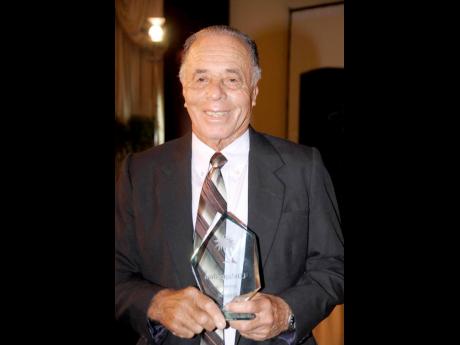English footballers of J’can heritage chronicled in new book
A new book will be published in the United Kingdom (UK) this month, which features footballers of Jamaican heritage and their contribution to English football.
Football’s Black Pioneers: The Stories of the First Black Players to Represent the 92 League Clubs is written by Bill Hern and David Gleave and published by Conker Editions. Hern says it was important to document the legacies of these players before they become forever forgotten in history.
“We felt it important to identify, commemorate and celebrate the lives and careers of those first black footballers before their names and stories were forever lost to history,” Hern told The Gleaner. “We were also keen to document the trials and tribulations many of them went through in order to help pave the way for those black players that followed.”
Some of the players with Jamaican roots who feature significantly in the book are Vivian Anderson, Carl Valentine, Neville Chamberlain (the uncle of Liverpool FC’s Alex Oxlade-Chamberlain), Tony Cunningham, and Lloyd Maitland, but two key figures for Hern are Jack Leslie and Lindy Delapenha.
The book explains in great detail how Leslie, whose father was from Hope Bay, Portland, while playing for Plymouth Argyle, was picked for England in 1925 but then allegedly dropped when the English Football Association (FA) realised he was black.
“Yes, the FA simply denied they had ever picked Jack in spite of the mountains of evidence to the contrary,” Hern said.
Now, there is a campaign to erect a statue in Leslie’s honour as a reminder of the racial injustice he faced in his time as a player.
“Nearly 100 years ago, Jack Leslie should have been pulling on an England football shirt and making history. But he was denied because of his race. It’s time for us all to right that wrong and recognise this remarkable player’s achievements with a statue. A memorial to someone who deserves a public monument,” a statement on the campaign’s Crowd Funder page said.
Delapenha’s Story
Hern said of all the players featured, he was most touched by Delapenha’s story.
“Lindy was not typical of an early black footballer,” he said. “He came from a middle-class family and was well educated, having attended Wolmer’s Boys. He had the confidence that comes from excelling at every sport he ever attempted.
“He claimed to have suffered racism while playing football only once – towards the end of his career when he was at Mansfield Town.
“A spectator made a racist comment towards him. He only just managed to restrain himself. When he got home that evening he recognised the spectator, who was waiting outside of Lindy’s house. The man’s wife had told him to go and apologise. The apology was duly accepted.”
Hern says the book was first aimed at fans of the 92 clubs in England’s professional leagues but he and Gleave hope that it helps others, including Jamaicans, to get an appreciation of the impact these players had on English football and the fight against racism.
“The parents of many of the Jamaican players came to England in the 1950s to help rebuild the country and create a good life for their children,” he said. “They came with nothing, worked hard, bought houses and brought up their children well.
“So I hope the book shows just what is possible and celebrates all of the brave people, the footballers, as well as their parents and ancestors.”
The book will go on sale on August 31.

